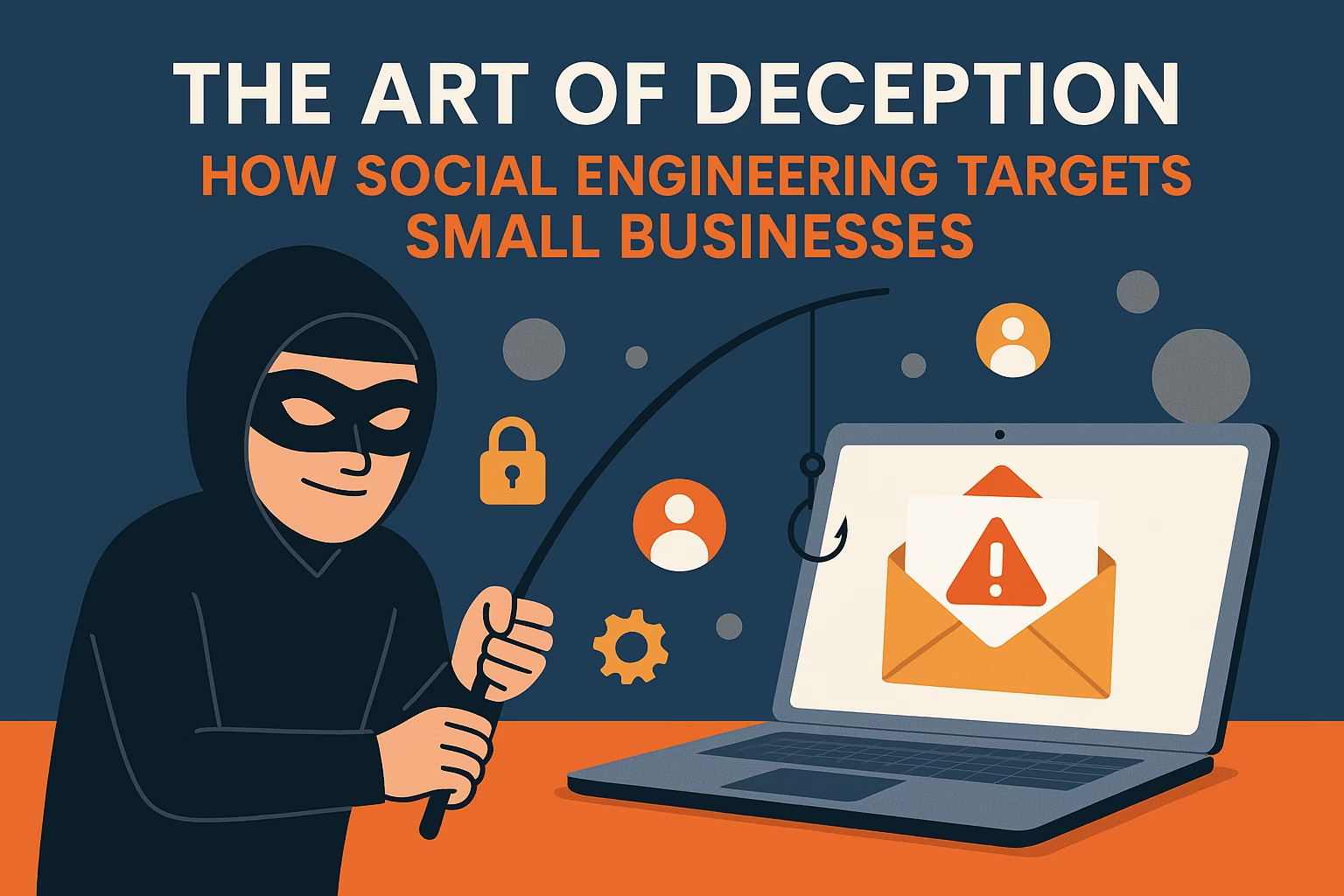Your Business Is a Bullseye
Picture this: it’s early morning, coffee in hand, and you’re scanning your inbox. One email stands out, a warning from your bank saying your business account has been locked due to suspicious activity.
Deadlines loom, panic sets in, and you click without hesitation. But the email wasn’t from your bank. It was a trap.
This is social engineering in action.
Whether you’re a small startup or a global enterprise, you’re in the crosshairs. Cybercriminals are increasingly using Social Engineering, psychological manipulation, not high-tech hacking, to breach organisations, and small businesses are especially vulnerable.
According to Verizon’s Data Breach Investigations Report, 22% of external breaches between Fall 2023 and Fall 2024 stemmed from social engineering.
Social Engineering – These attacks don’t rely on sophisticated malware they rely on human error.

What Is Social Engineering?
Social engineering scams is the art of manipulating people into giving up confidential information. Attackers impersonate trusted figures—coworkers, executives, vendors—to gain access to sensitive data.
Common Social Engineering tactics include:
- Phishing: Fake emails designed to steal credentials or install malware.
- Vishing: Phone calls impersonating banks or IT staff to extract information.
- Business Email Compromise (BEC): Fraudulent emails from “executives” requesting urgent fund transfers or sensitive documents.
How Social Engineering Attacks Unfold
- Reconnaissance
Hackers scour social media and company websites to gather personal and professional details. - Building Trust
They use accurate names, titles, and internal jargon to sound legitimate. - Exploitation
Victims are tricked into clicking malicious links, downloading malware, or sharing sensitive data. - Execution
Once inside, attackers deploy ransomware or steal information—crippling operations and draining finances.
Why Small Businesses Are Prime Targets for Social Engineering Attacks
Small businesses often lack the resources to mount strong defenses. Limited budgets, minimal training, and absent security policies make them easy prey.
The Fallout can be Devastating
- Financial Loss – Direct theft, fraud, and potential legal penalties.
- Operational Chaos – Locked systems, hijacked email accounts, and halted workflows.
- Data Breaches – Exposure of client data, passwords, and financial records.
- Reputation Damage – Loss of customer trust and long-term business opportunities.
How to Protect Your Business from Social Engineering Attacks
Train employees to spot phishing attempts and verify suspicious requests.
Implement multi-factor authentication across critical systems.
Regularly update software and review security protocols to patch vulnerabilities.
Use email filters, endpoint protection, and threat detection services.
Make sure everyone knows what to do—and who to contact—if an attack occurs.
Be Proactive, Not Reactive when it come to your Business Cyber Security
Social engineering preys on human nature. The best defense is awareness, preparation, and vigilance.
IBM reports the average cost of a data breach in 2024 exceeded $4.9 million. For small businesses, that’s not just a setback—it’s existential.
Protect your people. Protect your data. Make cybersecurity a priority.
If you enjoyed this article, share it with others who care about protecting their business from Social Engineering

With over 15 years at Speedster IT, I’ve built a career around helping businesses navigate the evolving world of technology. I publish all the content for the IT Support London Blog and Cyber Security Blog, where I share practical insights on infrastructure upgrades, cybersecurity trends, and smart IT strategies for growing companies.
